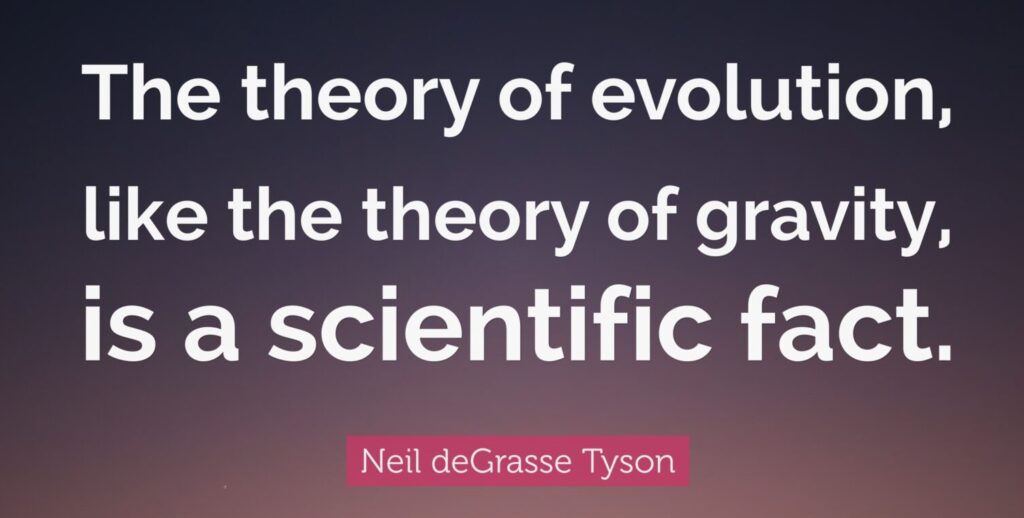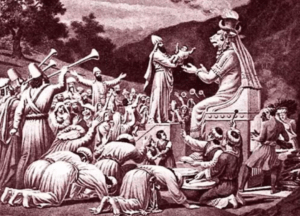Is there a danger associated with being wise? Isn’t wisdom our safeguard against foolishly exposing ourselves to danger?
A wise man is cautious and turns away from evil, But a fool is arrogant and careless. Proverbs 14:16 (NASB95)
How could anything as profitable and desirable as wisdom put anyone in danger? Solomon wrote that finding wisdom is better than acquiring gold. (Proverbs 16:16) Finding wisdom is a way to love our own souls. (Proverbs 19:8) Can something so valuable also be dangerous?
But Solomon also wrote this warning:
Do you see a man wise in his own eyes? There is more hope for a fool than for him. Proverbs 26:12 (NASB95)
It is one thing to be truly wise and quite another to be wise in our own estimation.
Consider these words of Jesus.
At that very time He rejoiced greatly in the Holy Spirit, and said, “I praise You, O Father, Lord of heaven and earth, that You have hidden these things from the wise and intelligent and have revealed them to infants. Yes, Father, for this way was well-pleasing in Your sight. Luke 10:21 (NASB95)
It is sobering to me that Jesus rejoiced because his heavenly Father chose to conceal the truth about Jesus’ identity from the wise and intelligent and reveal it instead to the childlike or simple-minded. Why would that bring joy to the Lord?
Isaiah prophesied something very similar.
Therefore behold, I will once again deal marvelously with this people, wondrously marvelous; And the wisdom of their wise men will perish, And the discernment of their discerning men will be concealed.” Isaiah 29:14 (NASB95)
God says that it glorifies him that man in his own wisdom and intelligence cannot know God. Satan prompted Adam and Eve to pursue godlike status by using their own reasoning power to gain knowledge, and God, in his wisdom, decided that no one will find him that way.
Unless we are willing to lay aside the pride of human intellect and wisdom, we will never know God.
In another place, Jesus quoted Isaiah.
FOR THE HEART OF THIS PEOPLE HAS BECOME DULL, WITH THEIR EARS THEY SCARCELY HEAR, AND THEY HAVE CLOSED THEIR EYES, OTHERWISE THEY WOULD SEE WITH THEIR EYES, HEAR WITH THEIR EARS, AND UNDERSTAND WITH THEIR HEART AND RETURN, AND I WOULD HEAL THEM.’ Matthew 13:15 (NASB95)
Faith comes by hearing or perceiving God’s words spoken in our hearts through revelation from the Holy Spirit. (Romans 10:17)
We can only know God by faith that is ignited when the Spirit of God opens our hearts and minds to apprehend the truth of God’s person and words. This is a spiritual encounter that transcends human reasoning and wisdom.
Paul likewise took up this theme in his first letter to the church in Corinth.
For consider your calling, brethren, that there were not many wise according to the flesh, not many mighty, not many noble; 27 but God has chosen the foolish things of the world to shame the wise, and God has chosen the weak things of the world to shame the things which are strong, 28 and the base things of the world and the despised God has chosen, the things that are not, so that He may nullify the things that are, 29 so that no man may boast before God. 1 Corinthians 1:26–29 (NASB95)
There is a wisdom from God and a wisdom of the world. (James 3:13-18) Those who rely on worldly wisdom use its ordinarily reliable principles for evaluating situations and information to arrive at a prudent course of action.
The wisdom from God relies primarily on being led by the Holy Spirit, which will always be in harmony with God’s written Word.
There is a very big difference between the two kinds of wisdom that produces quite opposite results.
The danger that comes from being wise is that we can start relying more on our natural wisdom than on the Spirit of God and the Word of God.
I have observed that the people whom I consider to be the wisest by nature are quite careful and make it a practice to try to avoid extremes, following King Solomon’s advice. (Ecclesiastes 7:16-18) Wise people I know generally believe that the truth is usually found somewhere in the middle between opposing opinions. This produces a tendency to refuse to identify with or commit to either side in a controversy.
Politically, taking the middle road often works pretty well, but when it comes to truth issues, it is seldom the answer.
People in the Bible who tried this “wise” approach sometimes ended up in the wrong place. Take for example when Gamaliel advised the Jewish leaders to avoid persecuting the apostles.
And now I say to you, keep away from these men and let them alone; for if this plan or this work is of men, it will come to nothing; 39 but if it is of God, you cannot overthrow it—lest you even be found to fight against God.” Acts 5:38–39 (NKJV)
Gamaliel used his wisdom to remain neutral in a controversy. On the positive side, he chose to not persecute the Christians, which was good, but his “wisdom” never led him make a commitment to Christ, as far as we know. It left him in a gray, lukewarm, undecided realm, which is perhaps more dangerous than being hotly against Christ. The apathetic middle position indicates that neither position is worth the effort or commitment.
Truth requires us to make a commitment to it, even if it seems to be an extreme position.
Jesus blew Judaism apart. It was impossible to remain neutral to him and his message, unless a person simply did not care. The same was true of Paul.
When Jesus arrived on the earth, he was thought by many to be the bastard child of an insignificant woman from Nazareth. When the Lord revealed to Mary, Joseph, the shepherds, Simeon, and Anna that this little babe was the one chosen by God to assume David’s throne on a forever basis, it was not something anyone would ever have predicted or been able to figure out. It was a completely surprising turn of events that was so extremely divergent from the opinion of the experts (the priests, scribes, Pharisees, and Sadducees) that it must have seemed ridiculous in the extreme. Few if any wise or biblically educated persons would ever have believed such a claim made by supposedly ignorant persons from the lower rungs of society.
When Jesus entered his public ministry, very few from the group considered to be educated and wise believed his message. In fact, they were offended by his confident teaching, his demonstrations of God’s power to heal and deliver people from demons, his refusal to be bound by ungodly Talmudic oral traditions, and his claim to be able to forgive sins. Eventually those in power put him to death for saying he is the divine Son of Man prophesied by Daniel. From their point of view, Jesus’ claims were dangerous, misguided, and blasphemous. Their “wisdom” completely let them down because it was unable to accept anything outside their understanding of what was the correct interpretation of the scriptures. How could all the experts be wrong?
These so-called authorities rebuked those who were open to the truth that Jesus was the Messiah. (John 7:45-49) The rulers and Pharisees were so convinced that their view regarding the coming Messiah was correct that they were not able to recognize him when he stood right in front of them and spoke to them. Their hearts were closed to anything that did not fit into their paradigm, understanding, and training. They were convinced that they were far wiser and more discerning than the “simple minded,” ignorant people who were being deceived into believing in Jesus. They were convinced that they were the guardians of truth responsible to protect God’s people from heresy and false messiahs. Their worldly wisdom and desire to avoid being deceived by Jesus’ “extreme” claims took them down a wicked path to murder their Messiah, all the time thinking that they were serving God.
In the eyes of the world, the gospel of our Lord Jesus Christ is outside the pale of what is reasonable and wise.
It is thought to be an extreme position that runs counter to the dominant worldview and all sound wisdom. To accept that Jesus rose from the dead as the Lord of Lords who will one day return to judge the living and the dead requires one to be willing to be labeled as a misguided religious fanatic.This happened to Paul when he preached the gospel in Athens, the center of worldly wisdom at that time.
And when they heard of the resurrection of the dead, some mocked, while others said, “We will hear you again on this matter.” Acts 17:32 (NKJV)
Some rejected the gospel, but others were “open” and wanted to hear more. In order to be saved, we have to move from being “open” to God to being committed to him. Before doing so, one should count the cost of making such a decision.
A public confession of Christ followed by water baptism is the designated way for us to declare our allegiance to Jesus the Messiah and become part of what the world considers to be a misguided fringe sect of fanatics.
It is impossible for us to accept the gospel as being the truth without the help of the Holy Spirit.
Only those people who hearts are open to receive revelation from God are able to believe and come to Jesus. This is what it means to be childlike.
Jesus said that unless we become like little children, we cannot enter the kingdom of God. (Matthew 18:3) Jesus said we cannot come to him unless we are drawn by the Father and have our eyes opened by the Spirit of God. (John 6:44)
Once that happens, the Holy Spirit enables us to see things in an entirely new way. We are able to operate by means of a divine wisdom not recognized or understood by those in the world.
Paul wrote:
Yet we do speak wisdom among those who are mature; a wisdom, however, not of this age nor of the rulers of this age, who are passing away; 7 but we speak God’s wisdom in a mystery, the hidden wisdom which God predestined before the ages to our glory; 8 the wisdom which none of the rulers of this age has understood; for if they had understood it they would not have crucified the Lord of glory; 1 Corinthians 2:6–8 (NASB95)
Since we are human, we remain susceptible to the temptation to rely on human wisdom instead of the Spirit of God and the written Word. This can take us into dangerous territory. Every strength has a corresponding weakness. The strengths associated with wisdom are obvious, but the weaknesses are more subtle. A person who is endowed with natural wisdom can easily begin to rely on that strength and slip away from a dependence on the Holy Spirit to open God’s Word and wisdom to us. There is a similar peril attached to being intelligent. We can start relying upon natural smarts instead of God’s Spirit.
The truly wise person learns to submit his natural wisdom and intelligence to the Holy Spirit and the Word of God.
The humble person will remain open to the Holy Spirit’s revealing surprising truths to him or her for all of life. Otherwise we are in danger of becoming what Jesus called an “old wineskin” that is unable to receive new revelation from God’s Spirit. If we are willing to be identified with the remnant who believe God’s Word and declare allegiance to Jesus, we likely will have great impact on the world. We may be foolish in the world’s sight, but God will say we are wise.





 God’s benevolence and wisdom. God would not do that, but the devil seeks to convince us that this is the case. Pagan religions have long promoted transgenderism. We know that the demons behind these false gods report to the devil.
God’s benevolence and wisdom. God would not do that, but the devil seeks to convince us that this is the case. Pagan religions have long promoted transgenderism. We know that the demons behind these false gods report to the devil.